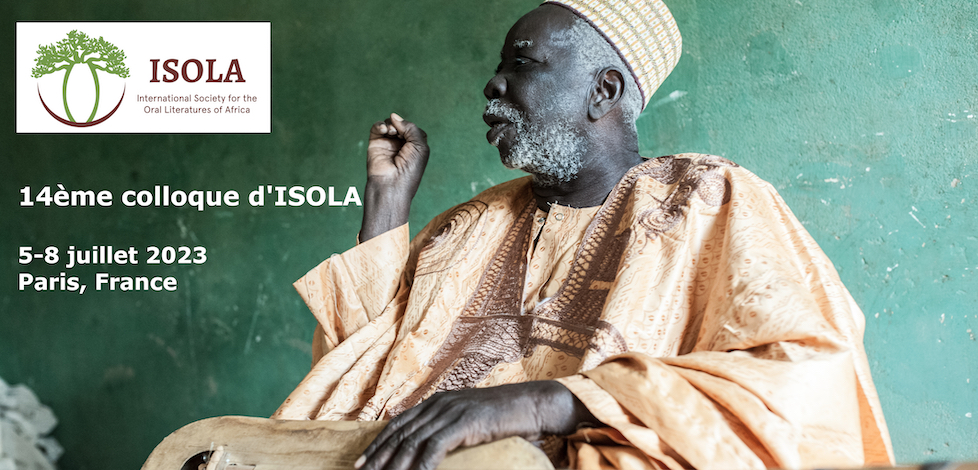Yoruba poetry freely draws on environmental issues to address different thematic concerns. Among the Yoruba of southwestern Nigeria, oral and written literature interface freely to enable the oral artist to fulfil his social responsibility. One of the themes that feature prominently in Yoruba poetry is animism. The lens of the oral artist focuses on the relationship between human and non-human creatures. This paper, using hermeneutic and eco-criticism approaches, examines representation of non-human characteristics and their relationship with human characters in selected Yoruba oral poems and selected Yoruba written poems. The paper affirms that the poets, using the oral poetic genres and written forms, establish the symbiotic relationship between humans and non-humans. Apart from the entertainment function, there are many animism lessons drawn from the relationship between humans and non-humans in order to develop society. Similarly taboos, superstitions, customs and traditions, as portrayed in the poems, tend towards the pursuit of a sustainable environment. Satire is used as a technique to portray the folly of humans in relation to non-humans in order to breed a sanitised society and healthier environment. In conclusion, the paper argues that Yoruba oral and written poetry are veritable tools to enlighten citizens about sustainable development in the contemporary world.
Arinpe G. ADEJUMO, a Professor of Yoruba literature, playwright, poet, and critic. She is a former Chair of the Department of Linguistics and African Languages, and the current Deputy Provost (Academic), of the Postgraduate College, University of Ibadan, Nigeria. She is the author of the play, Afàgo Kéyin Àparò and Ròóore, a collection of poems. Professor Adejumo is the author of the first book-length study of dramatic satire in Yoruba language, Ìṣẹ̀fẹ̀ Nínú Àwọn Eré Onítàn Yorùbá (2001). Her research focuses on the interface between text and intertextuality in contemporary Yoruba poetics genres. Some of her publications that interface between oral and written literature are: “Text and Intertextuality in Contemporary Literary Genres, Thematisation and Perspectivisation of Conflict in Yoruba Literary Genres and Technologising Oral Text, Archiving Yoruba Oral Literature Through New Technological Media. In addition, she co- published “Animistic Perspective of the Yoruba Lineage Poetry in Natural Creatures and co- edited Ọ̀ tun Ìmọ̀ Nínú Ìtàn Àròsọ D. O. Fagunwa (2016), a volume of essays to commemorate the fiftieth anniversary of D. O. Fagunwa's passing. Her current research focuses on the Tropes of Patriotism, Citizenship, Leadership, Governance and Development in Yoruba Literature. She is a member of Nigerian Academy of Letters, International Society for African Oral Literatures, Yoruba Studies Association of Nigeria and Linguistics Association of Nigeria.
Leçons d'animisme et de comportement éco-responsable dans la poésie yoruba
La poésie Yoruba tire des problèmes sur l'environnement pour adresser des préoccupations thématiques. Chez les yorubas au sud-ouest du Nigeria, la littérature orale et écrite ont une interface l'une à l'autre pour que l'artiste oral réalise sa responsabilité sociale. L'un des thèmes qui est proéminent dans la poésie yoruba est l'animisme. L'objet de l'artiste oral met au point sur la relation entre les humains et les non-humains. Cet article. En s'appuyant sur les approches herméneutique et éco-critique, tente à examiner la représentation des caractéristiques des non-humains et leur relation avec les êtres humains dans les poèmes oraux et écrits yoruba sélectionnés. Cette étude affirme que les poètes, en utilisant la forme des genres poétiques oraux et écrits, ont établi la relation symbiotique et les humains et les non-humains. A part de la fonction de divertissement, il y a beaucoup de leçons en animisme tirés de la relation entre les humains et les non-humains afin de développer une société. D'une façon similaire, les tabous, les superstitions, les coutumes et traditions démontrés dans les poèmes, ont tendance au développement de l'environnement. La satire est utilisée en tant que technique pour démontrer la folie des humains en relation aux non-humains afin de créer une société assainie et un environnement salubre. En conclusion, cet article affirme que la poésie yoruba orale et écrite sont des véritables outils pour éclairer les citoyens en ce qui concerne le développement durable dans le monde contemporain.
Arinpe G. ADEJUMO, Professeure (Titulaire) de littérature Yoruba, est dramaturge, poète et critique. Elle est ancien Chef de Département de linguistique et des langues Africaines, et actuellement, Sous-Prévôt (Académique) du Collège Supérieur de Troisième cycle, University of Ibadan, Nigeria. Elle a écrit une pièce théâtrale intitulée Afàgo Kéyin Àparò et Ròóore, une collection de poèmes. La Professeure (titulaire) Adejumo est auteur d'un grand volume de satire dramatique en langue Yoruba, Ìṣẹ̀fẹ̀ Nínú Àwọn Eré Onítàn Yorùbá (2001). Sa recherche porte sur l'interface entre texte et intertextualité dans les genres poétiques yorubas contemporains. Parmi ses publications qui a une interface entre la littérature orale et écrite sont “Texte et Intertextualité dans les genres littéraires contemporains, la thématisassions et la mis en perspective du conflit dans les genres littéraires et la mis en technologie le texte oral, archiver la littérature orale Yoruba à travers le nouveau media technologique. En plus, elle a co-écrit “Animistic Perspective of the Yoruba Lineage Poetry in Natural Creatures et a co-rédigé Ọ̀tun Ìmọ̀ Nínú Ìtàn Àròsọ D. O. Fagunwa (2016), une collection des essais pour commémorer le cinquantième anniversaire de la mort D. O. Fagunwa. Sa recherche actuelle est sur les Tropes du Patriotisme, de la citoyenneté, du leadership, du gouvernement et du Développement en littérature Yoruba. Elle est membre de l'Académie Nigériane des Lettres, de la Société Internationale pour les Littératures Africaines, de l'Association des Etudes Yoruba du Nigeria et de l'Association Linguistique du Nigeria.

 PDF version
PDF version
